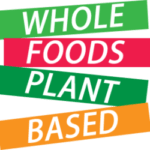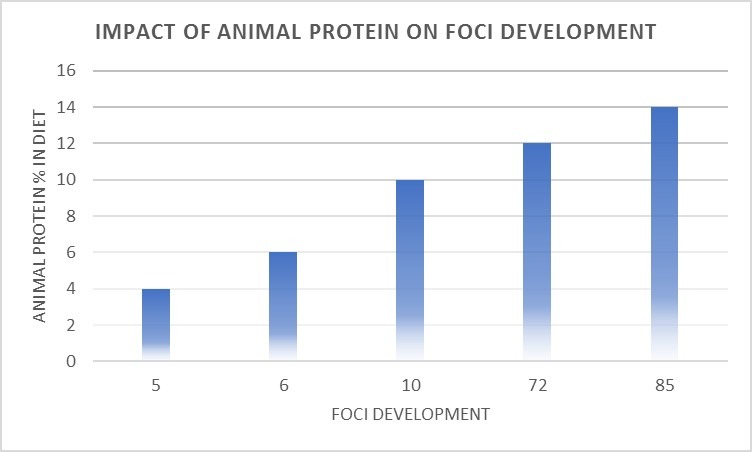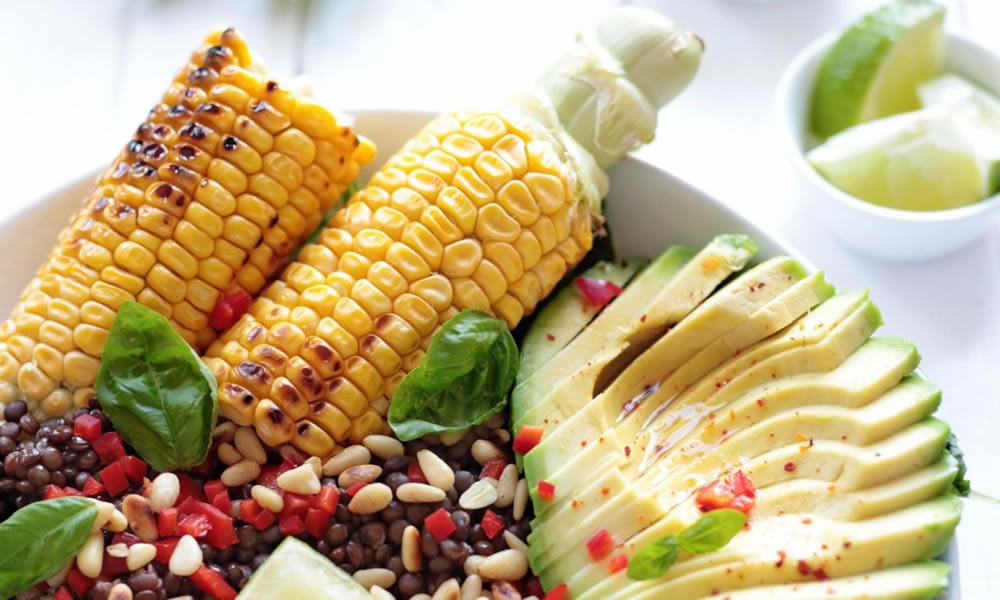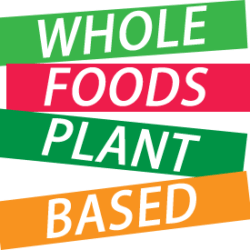
Roy's Weekly Blog October 6, 2017
Blog Entry
It has been a good week for me, I lost another two pounds. Many comments have been emailed to with questions asking “…are you vegan or vegetarian”. Changing your lifestyle, especially something as core to existence as your diet can be very confusing. I was very confused vacillating between the low carbs high fat versus vegans eliminating meat and animal product crazes. After a lot of investigation and study, my aspiration is to live my life consuming a whole foods plant based diet.
My main source of nutrition is plant based food that is minimally processed. So, what does that mean? Plant based whole foods are consumed in their natural and original form. “Food that has been processed or refined as little as possible and is free from additives or other artificial substances.” Some whole foods have a nutrition label (dried fruit, canned beans, raw packaged nuts, etc.), but the majority don’t. Most come directly from the earth – fruits and veggies, beans and legumes and grains like brown rice are considered whole because they haven’t been altered from their natural state. There is no need for a label on an apple or orange. When I purchase packaged food, my goal is to find whole food as the only ingredient or at least first of never more than five ingredients with no unidentifiable additives.
There’s a distinction between whole foods and organic foods, which are quite different. In the case of fruit and vegetables, “organic” refers to the absence of pesticides, bio-engineering and irradiation. Whole foods are foods based on whole ingredients, with minimal processing, preservatives and additives. These include fresh fruits and vegetables, and whole grains. This is a confusion for some people, but I eat organic whole foods when possible and whole foods all the time. Depending on your areas availability and budget, you may not be able to purchase organic. I try to grow as much of my own food as I can, and when I buy non-organic products washing my produce is paramount (for a spay 1 TBS lemon juice, 2 TBS baking soda, and a cup of water / 1 part vinegar to 3 parts water is a great soaking cleaner). I am worried more about poor nutrition and the consequences, than I am with pesticides. It’s not just cancer and heart disease that respond to a whole foods plant based diet. The China Study research showed it may also help protect from and even reverse diabetes, obesity, autoimmune diseases, bone, kidney, eye, and brain diseases. Plants are miraculous…
I don’t consider dairy a suitable food for humans, as it is a whole food for baby cows. All animals are weaned off milk early in life, so why do humans consume another animal’s milk throughout their lives?… NO other animal drinks another’s milk except humans. Dairy is laced with puss, antibiotics and cow hormones, their fat and protein have been linked to cancer, and the processed byproducts are concentrated forms of the fat and protein in milk. Human breast milk was made for baby humans, and whole foods are available for the rest of our lives.
Video of the Week
MEL ROBBINS is a vlogger, serial entrepreneur, bestselling author, award-winning CNN Legal Analyst and Contributing Editor to SUCCESS Magazine.
Best known for inventing the life-changing 5 Second Rule, and delivering one of the most-viewed TEDx Talks in the world, Mel is the go-to expert on change, confidence, and decision-making for the world’s leading brands.
She’s also the most booked female speaker in the world.
Relatable, smart and real, Mel’s confidence-building research and fear-fighting techniques have been featured in more television shows, podcasts, magazines and bogs than one can list. From Good Morning America to Fox News, Oprah to Dr. Phil, USA Today to The New York Times.
Her popular vlogs on www.melrobbins.com, and articles for various media partners reach more than 10 million people per month.
Okay, so what about protein? For an adult, the protein requirement is a minimum of about 4-5% of total calories per day on average or 0.3g/pound body weight. Scientists have measured people’s protein consumption and nitrogen balance and determined how much protein (as nitrogen) must be consumed to balance how much is routinely lost. This estimate is considered the minimum daily requirement. Because half of us need more protein than that average minimum, a safe number to shoot for is around 8-10% of total calories. At that point, almost everyone will be getting more than what they need. Eating a varied whole-food, plant-based diet will naturally provide approximately 10% of protein from total calories without any special effort. In developed countries we have the privilege of access to fresh, good quality plant foods at all times of year, and the variety available provides more than enough protein in the diet.
In my opinion, there is no safe amount of processed or refined sugar. Naturally contained sugars in fruit and vegetables are balanced by the fiber, vitamins, enzymes and other properties of the fruit/vegetable which slow sugar digestion and help the body deal with it more easily. Scientists have found that sugar is addictive and stimulates the same pleasure centers of the brain as cocaine or heroin. Just like those hard-core drugs, getting off sugar leads to withdrawal and cravings, requiring an actual detox process to wean off.
I avoid the consumption of highly processed foods. These products are developed to extend shelf life not improve health or provide a nutritious alternative to whole foods. They are typically laced with scientifically concealed sugar, salt and preservatives. Most prominent are the fat free products that substitute fat with sugar, so it is palatable so we can become hooked on them. Food producers have scientist that combine sugar and salt with scientific precision to ensure we are addicted to these products.
So, why I don’t consider myself a vegan or vegetarian: I eat animal products… My diet is based on eating at least 90 – 95% of my calories from whole food plant based sources daily. In that respect, I’m somewhat an over achiever. Daily, I eat almost 100% whole foods from plants. On occasion, since July 17, 2017, I have eaten 3 – 4 ounces of meat (chicken or fish). It has been a while since my last encounter with an animal product.
Dr. Campbell of the China Study explains that the human body needs a diet of about 10 percent protein to be healthy (a range of about 8-12 percent depending on body weight). As soon as protein intake exceeds the needed amount, cancer enzyme production increases precipitously. When we are exposed to a carcinogen, it is absorbed into the blood and then transported into various cells. Once in a cell, the carcinogen is then metabolized by an enzyme, which then mutates into a dangerous byproduct that attacks the cell’s DNA. He conducted many experiments with different types of protein both animal proteins from fish and livestock, and plant proteins like gluten and soy. The result supported animal protein diets in the 10-20 percent ranges all promoted increased enzyme production. His research also proved that a 10-20 percent and above plant based protein diet did not increase enzyme production or tumors.

Nobody can argue that reducing blood cholesterol levels prevents and reduces your risk for heart disease. In all the tests, and because of their massive data collection efforts, Dr. Campbell and his team found that animal based proteins raised bad blood cholesterol levels, while plant based proteins lowered levels. The conclusions are clear: nutrition has everything to do with health and limiting animal protein to less than 10% of your caloric intake has been proven to reduce the risk of cancer and many other diseases including the contributors to metabolic syndrome. I also have faith in the passages in the Bible that encourage eating meat. I just make it a point to not over indulge, as the goal for following this lifestyle change is to improve health, and if the day comes were I need to cut out meat to do that, I shall!
There is a lot of confusion online supporting the latest diet life styles and crazes.. The following sections is an overview of the many different diets and lifestyles available and being promoted. This in no way is all inclusive.
Vegetarian – A person who does not eat meat, and sometimes other animal products, especially for moral, religious, or health reasons. There are several vegetarian subgroups that eat eggs, dairy, fish, and or chicken (those who don’t eat red meat). Lacto-ovo-vegetarians eat both dairy products and eggs; this is the most common type of vegetarian diet. Lacto-vegetarians eat dairy products but avoid eggs. Ovo-vegetarians eat eggs but not dairy products.
Vegan – A person who does not eat or use animal products. Distinctions are sometimes made between several categories of veganism. Dietary vegans (or strict vegetarians) refrain from consuming animal products, not only meat but also eggs, dairy products and other animal-derived substances. The term ethical vegan is often applied to those who not only follow a vegan diet but extend the philosophy into other areas of their lives, and oppose the use of animals for any purpose. Another term is environmental veganism, which refers to the avoidance of animal products on the premise that the harvesting or industrial farming of animals is environmentally damaging and unsustainable.
Raw Vegan – A raw foods diet is made up of fresh, whole, unrefined, living, plant-based foods: fruits, vegetables, leafy greens, nuts, and seeds, which are consumed in their natural state, without cooking or steaming.
High Carbohydrate Low Fat (HCLF) Vegan – This is a vegan diet focused on eating healthier, with most of the calories (usually 70-80%) coming from carbohydrates. People eating this way usually eat a lot of either fruit and/or grains and root vegetables, which means bread, potatoes, pasta, banana smoothies, rice, and much more. At the same time, they cut out most or all the free oils and eat limited amounts of nuts, seeds, and avocados.
80 / 10 / 10 – The goal is to get 80% of your calories from carbohydrates–primarily raw fruit–and 10% each from raw, plant-based protein and fat. Raw food and vegan diets are nothing new, of course.
I could go on for pages on the different types of diets and why they exist, but I’d rather stick to what I know works for me based on the extensive research completed by the China Study. This study showed that the counties in China with the lowest consumption of animal fat and protein, processed foods, and sugar had the lowest incident of cancer and metabolic syndrome. So, after extensive investigation I discovered a nutritional way to lose weight, gain energy, reduce my risk for cancer, and eliminate my metabolic syndrome.
What I do…
Limiting myself to three meals most days, helps as I used to graze or binge during the day. Mapping out times to eat and controlling portions with tracking tools is right for me. Without this discipline, I probably would eat too much and not know it.
I never was satisfied, so I continued to eat until time to sleep. I was always tired, and could not concentrate without coffee or sugar stimulants. Eliminating sugar, high fructose corn syrup, and diet sweeteners helped me stop the cravings for more and more food.
Oils are just too calorie dense for me to eat, and since I cut out the fried foods there is little to no use for them in their free form. I do eat fat, but as it exist in whole foods like nuts, nut butters, avocados, etc.
I explained in this blog posting already my reason for not ingesting dairy.
Most of my meals, at least two are plant based only. I tend to eat animal products with dinner, if at all. This makes it easy for me, and after two meat free meals I tend not to want meat for the third. I have not eaten any beef or pork since making this change, but chicken or fish has been consumed by me in small portions four or five times.
You may have heard that people living this way eat lots of spinach, kale, and collard greens, and that’s all. You may even think I live only on leafy and raw vegetables. However, nothing could be further from the truth. While leafy vegetables are an important part of the whole food plant based diet, they are a very poor calorie / energy source for a sustainable diet. I would need to eat almost 16 pounds or more of leafy vegetables to get 2,000 calories of food! The new center of the diet is now going to be the starch based comfort foods most of us love, but that have long been relegated to side dishes or stigmatized because of a misconception that they are “unhealthy.” They may be prepared a bit differently—leaving out oil and dairy, but most of them will nonetheless be familiar, calorie dense and nutritiously satiating.
Variety is the spice of life so experiment. I have tried various recipes, changing them to my way of eating. I make variety part of embarking this new lifestyle in the form of delicious dishes like Sweet Potato Lasagna, Mashed Potatoes and Gravy, Black Bean Burgers, Thai Noodle Stir Fry, Bean Soups, Shepherd’s Pot Pie, Black Bean and Rice Burritos, Grain Bowls, Chickpea Curry, and Spicy French Fries.
I hope this helps in answering all the questions about veganism and vegetarianism. It is best to do your research, adopt a plan, and adjust as necessary. I did not set out to eliminate meat, but it was easy and helped accelerate improving my health. When I started, the plan was to eat meat once a day, in actuality it has been eaten on average twice a month since starting this lifestyle. Good luck with your journey!

